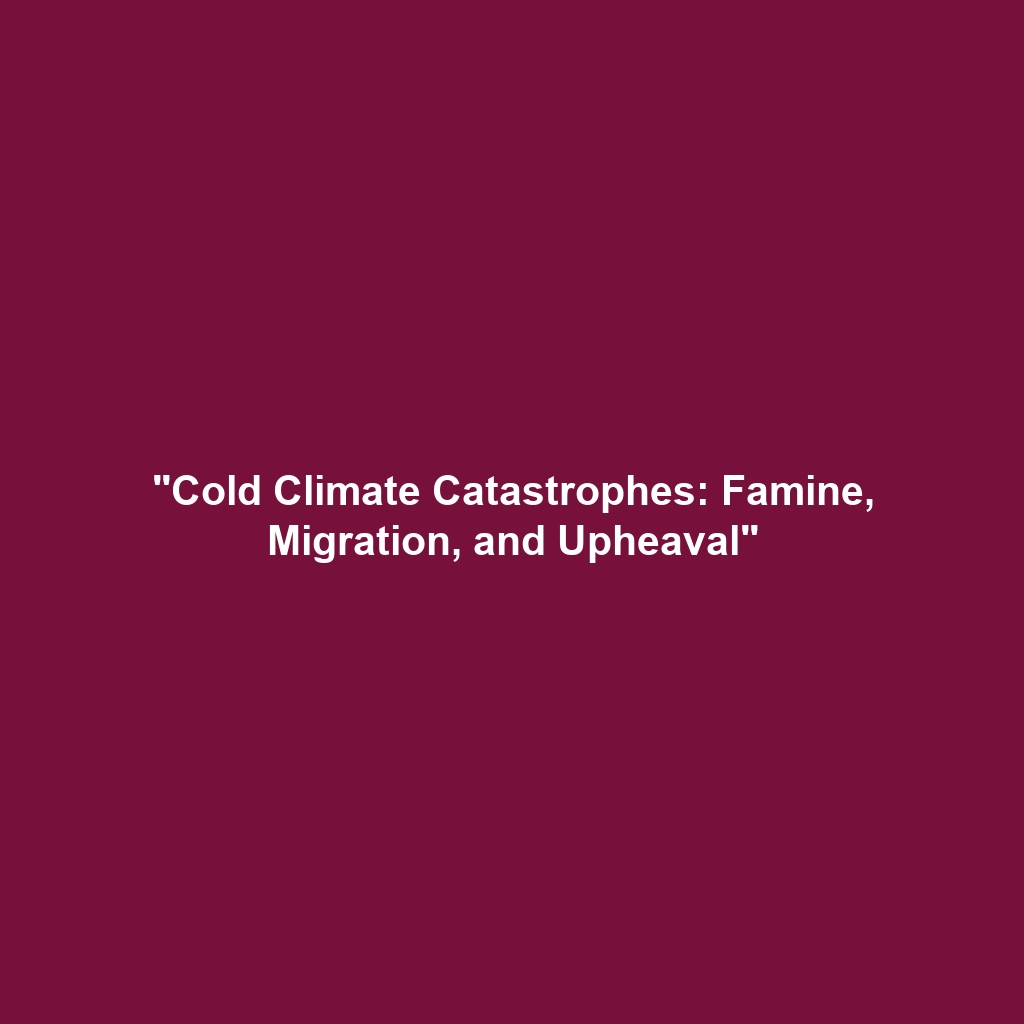<>
Impact on Human History: Famine, Migration, and Societal Upheaval During Colder Periods
The relationship between climate and human history is a profound aspect of climate history, particularly the influence of colder periods. These times have historically triggered significant famine, mass migrations, and societal upheaval. Understanding how these climatic shifts affected human behavior and societal structures is crucial for comprehending our past, as well as for informing future strategies on climate resilience and adaptation. This article delves into the effects of cold spells on humanity, spotlighting key events and patterns that shaped civilizations.
Key Concepts
Examining the impact of colder periods reveals several critical concepts:
- Famine: Historical records indicate that colder climates often led to drastic reductions in agricultural output due to shorter growing seasons and crop failures. This scarcity resulted in widespread famine, altering population dynamics and societal structures.
- Migration: As food sources dwindled, many communities were forced to migrate to more hospitable areas. This movement not only reshaped demographic landscapes but also facilitated cultural exchanges and conflicts.
- Societal Upheaval: The pressures of famine and migration frequently led to instability, social unrest, and the collapse of established governments. Declining civilizations often experienced factional struggles exacerbated by resource scarcity.
Thus, the interplay of climate history and human actions highlights the profound implications of environmental changes on societal development.
Applications and Real-World Uses
Understanding the effects of colder periods informs several real-world applications, such as:
- Policy Development: Governmental bodies can utilize historical insights to formulate climate-adjusted agricultural policies that mitigate the impact of future cold spells.
- Disaster Preparedness: Learning from historical patterns enables communities to bolster disaster preparedness plans, anticipating food shortages and necessary migration.
- Educational Programs: Integrating climate history into educational curriculums can foster a greater understanding of socio-environmental interactions among students.
Current Challenges
Despite advancements in understanding the impact of colder periods, scholars face several challenges:
- Data Limitations: Many historical records are incomplete, leading to gaps in understanding specific events and their impacts.
- Interdisciplinary Barriers: Effective study of climate history often requires collaboration among various fields, which can be challenging to coordinate.
- Historical Bias: Written records often reflect the perspectives of the elite, potentially omitting the experiences of marginalized groups affected by climatic changes.
Future Research and Innovations
Looking forward, innovations and research for understanding the impact of colder periods on human history include:
- Climate Modeling Technologies: Next-gen technologies are being developed to model past climates more accurately, allowing researchers to predict future socio-economic impacts.
- Interdisciplinary Studies: As climate science evolves, interdisciplinary studies are expected to bridge gaps between history, archaeology, and environmental science, providing a more complete picture.
- Artificial Intelligence: AI tools are increasingly being applied to analyze vast datasets from historical records, enhancing our understanding of human responses to climate shifts.
Conclusion
The study of how colder periods impact human history through famine, migration, and societal upheaval is essential within climate history. It not only sheds light on past human behavior but also serves as a critical framework for anticipating future climate-related challenges. As we seek innovative solutions to enhance resilience against climatic fluctuations, it is imperative to draw lessons from history. To learn more about related topics, explore our resources on famine studies and migration patterns.
